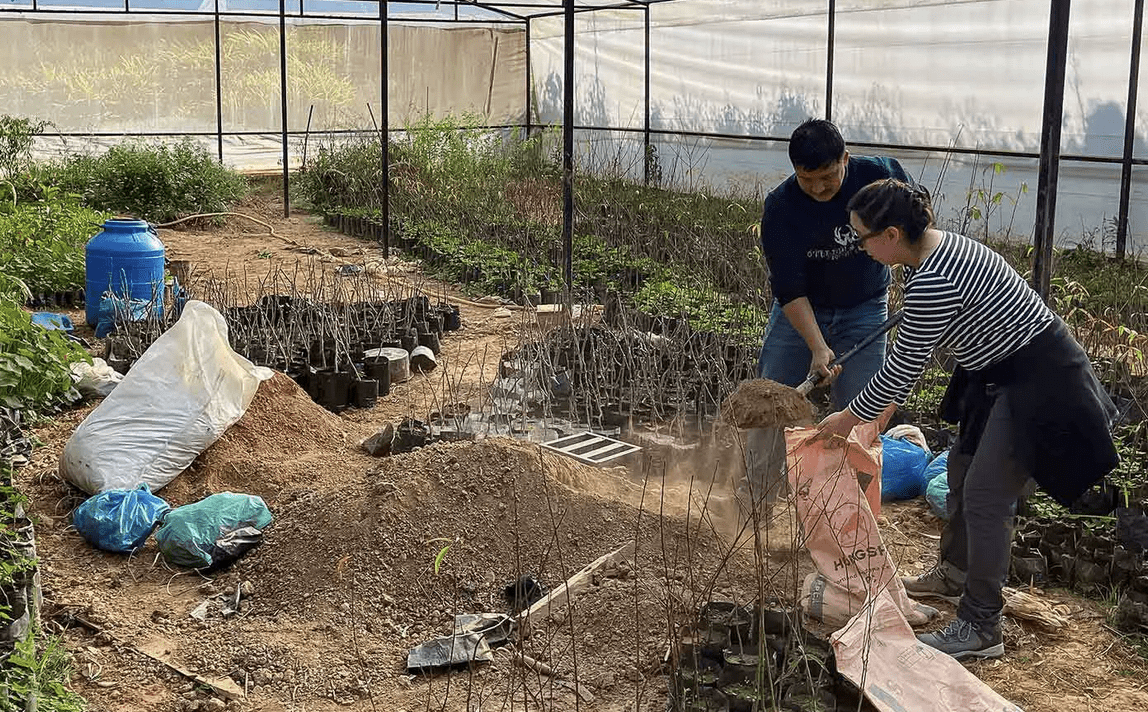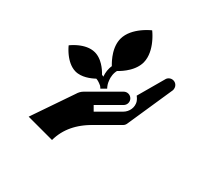Biochar: Enhancing Soil Health and Storing Carbon
Project Leads: Er. Shree Krishna Dhital and Dr. Leena Malayil
Biochar is a carbon-rich material produced by heating organic waste in a low-oxygen environment. It offers many agricultural benefits: enhanced soil fertility, improved water retention, and higher nutrient availability. Beyond its role in soil health, biochar also serves as a climate change mitigation tool by sequestering carbon in the soil, thereby reducing greenhouse gas emissions. These benefits make biochar a powerful solution for promoting sustainable agriculture and building climate resilience.
Nepal is suffering a decline in soil fertility, a challenge that directly impacts crop yields and food security. Climate change intensifies risks for farmers through unpredictable rainfall and snowpack, and heatwaves. Hence, biochar presents a sustainable approach to restoring soil health. It reduces dependence on chemical fertilizers, which can be expensive and polluting, while enhancing the soil's ability to support crops. On a community level, sustainable biochar production can boost rural economies by creating jobs and promoting eco-friendly farming.
Sanskriti Farms and Research Center takes a multifaceted approach to promote biochar solutions in Nepal, with initiatives in research, collaboration, and education:
Field-based Research:
- Field trials on the farms to study biochar's effects on soil improvement and crop yields.
- Developing biochar production units tailored for local farmers, so they can produce and distribute their own biochar.
- Testing biochar quality through its impact on various crops, and its long-term benefits in water conservation, soil fertility, and carbon sequestration.
Collaboration:
- Partnerships between universities and research institutions, including Kathmandu University, Sanskriti Farms, EWB Ireland, TU Dublin, and the Global FEWture Alliance at the University of Maryland.
Educating Future Leaders:
- A team of four UMD Global STEWARDS —Asangwing Formukong, Rafian Aziz, John Samura and Brian Crann, — are conducting an in-depth literature review on The Role of Biochar in Enhancing Crop Yield in Nepal as part of their interdisciplinary team project. Their work will culminate in a peer-reviewed manuscript and a fact sheet for key stakeholders, offering valuable insights and practical guidance.
- Undergraduate and graduate students from Kathmandu University are assisting the team in field-based research, which gives them valuable applied experience.
Sanskriti Farm student-interns are working on biochar production and field trials to assess its effects on soil health and plant growth.
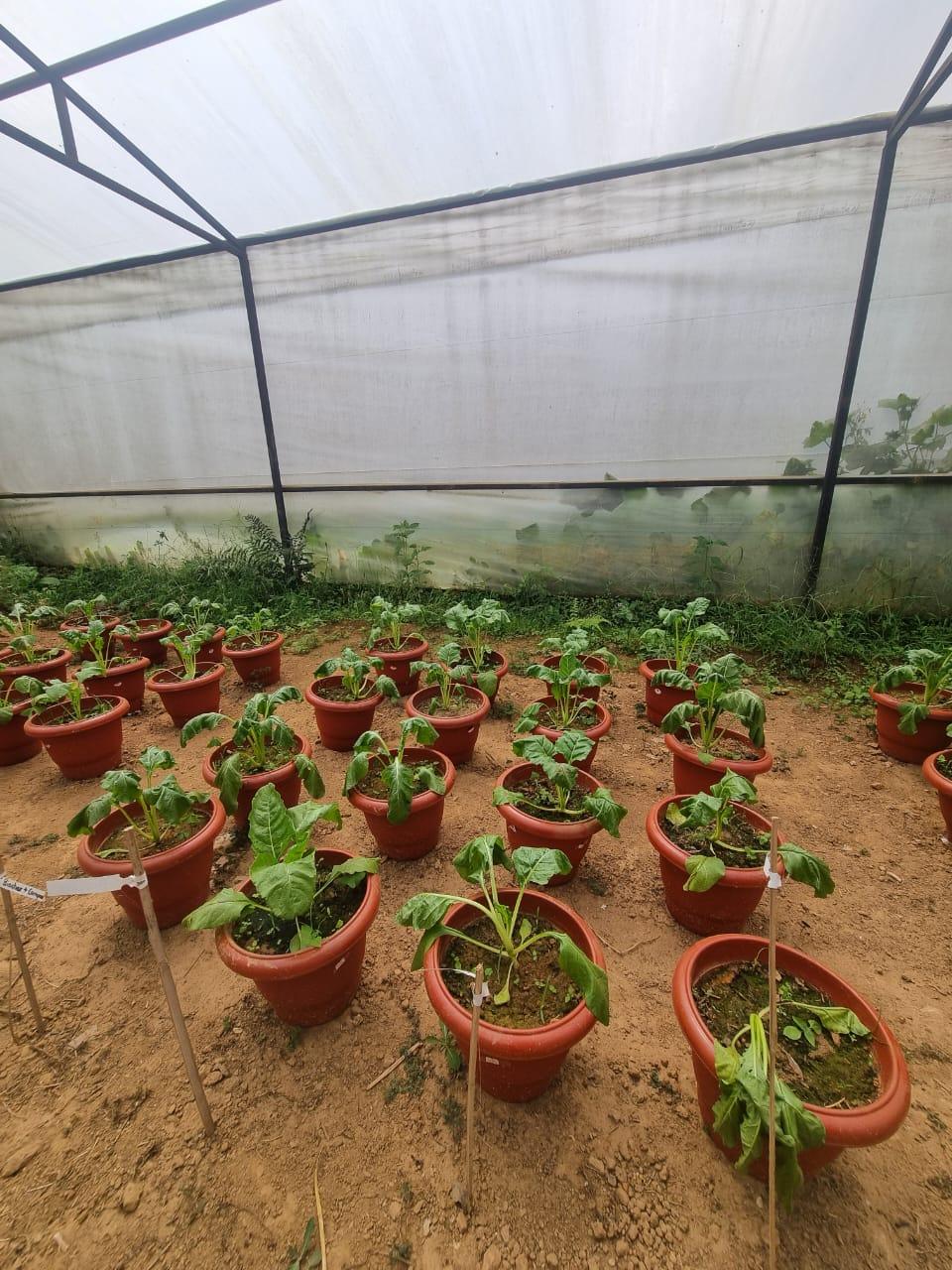
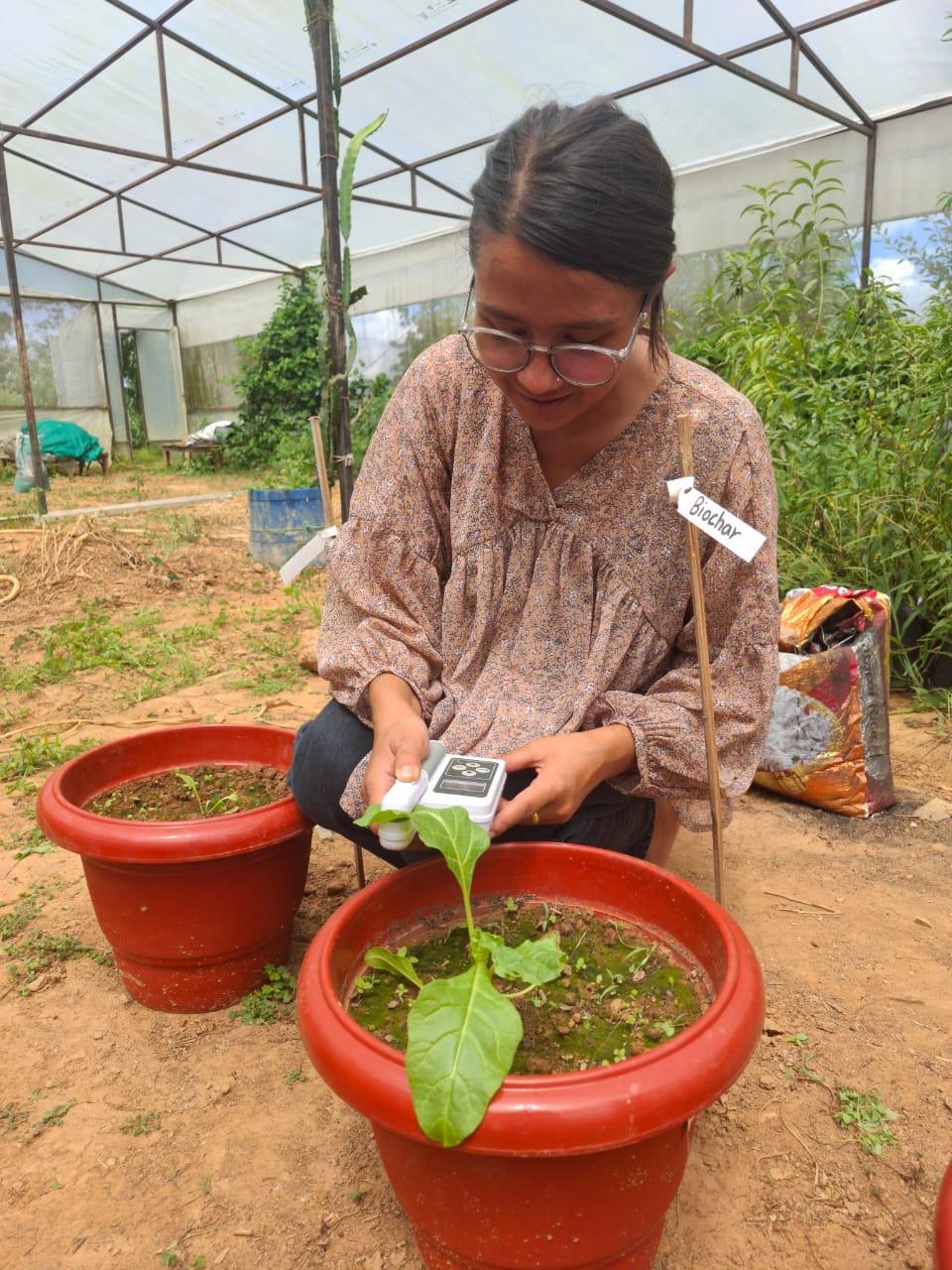
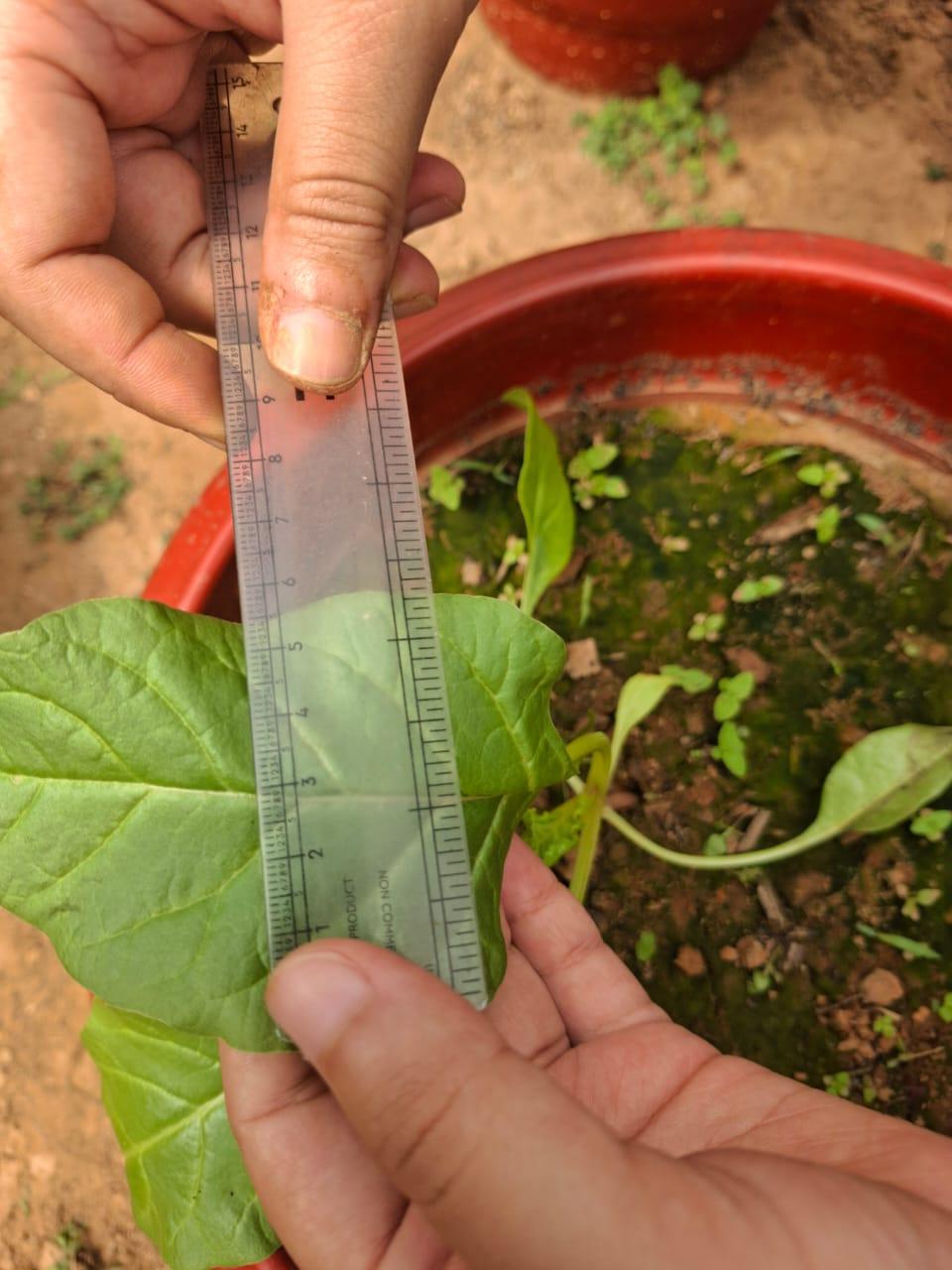
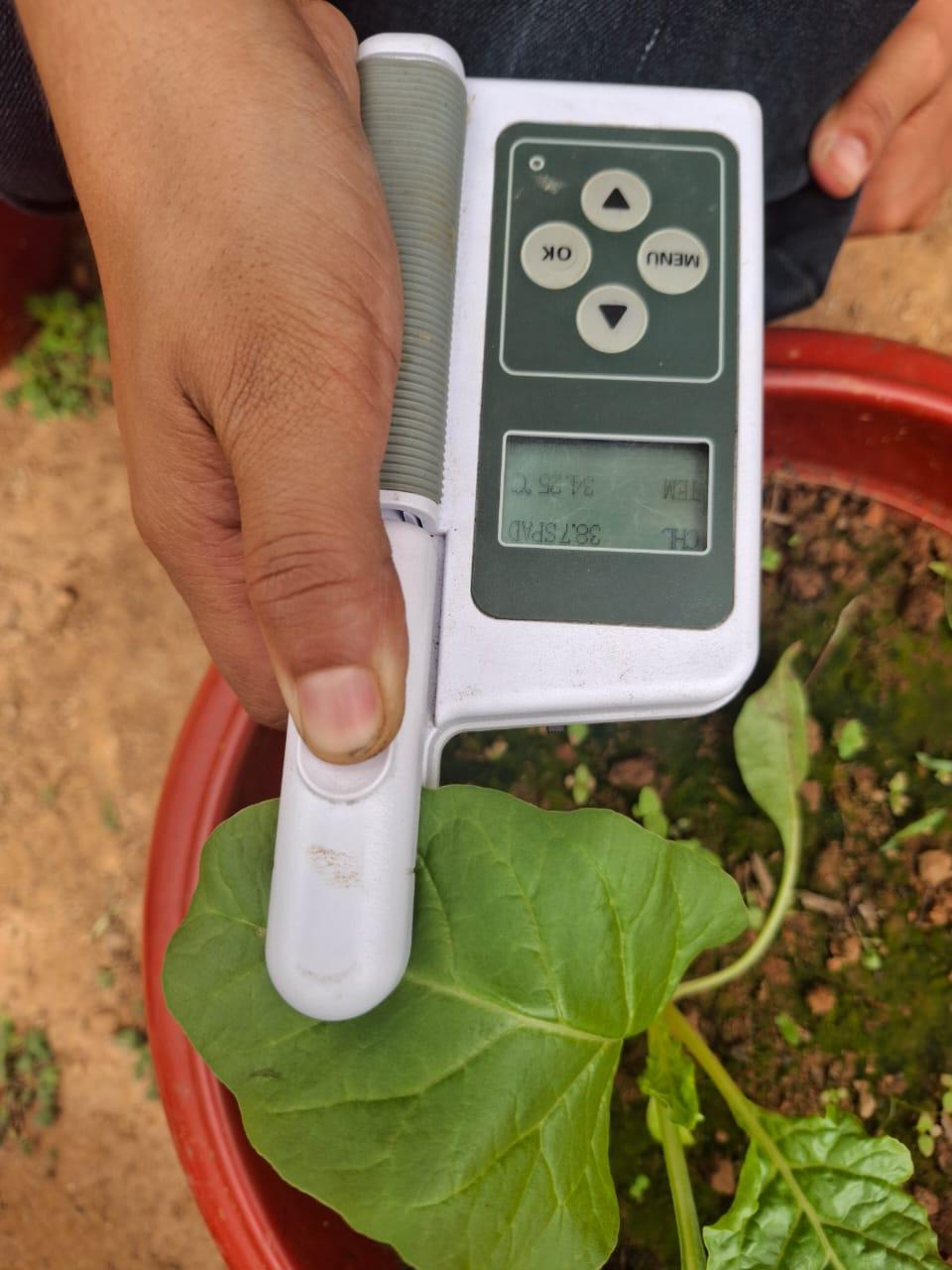
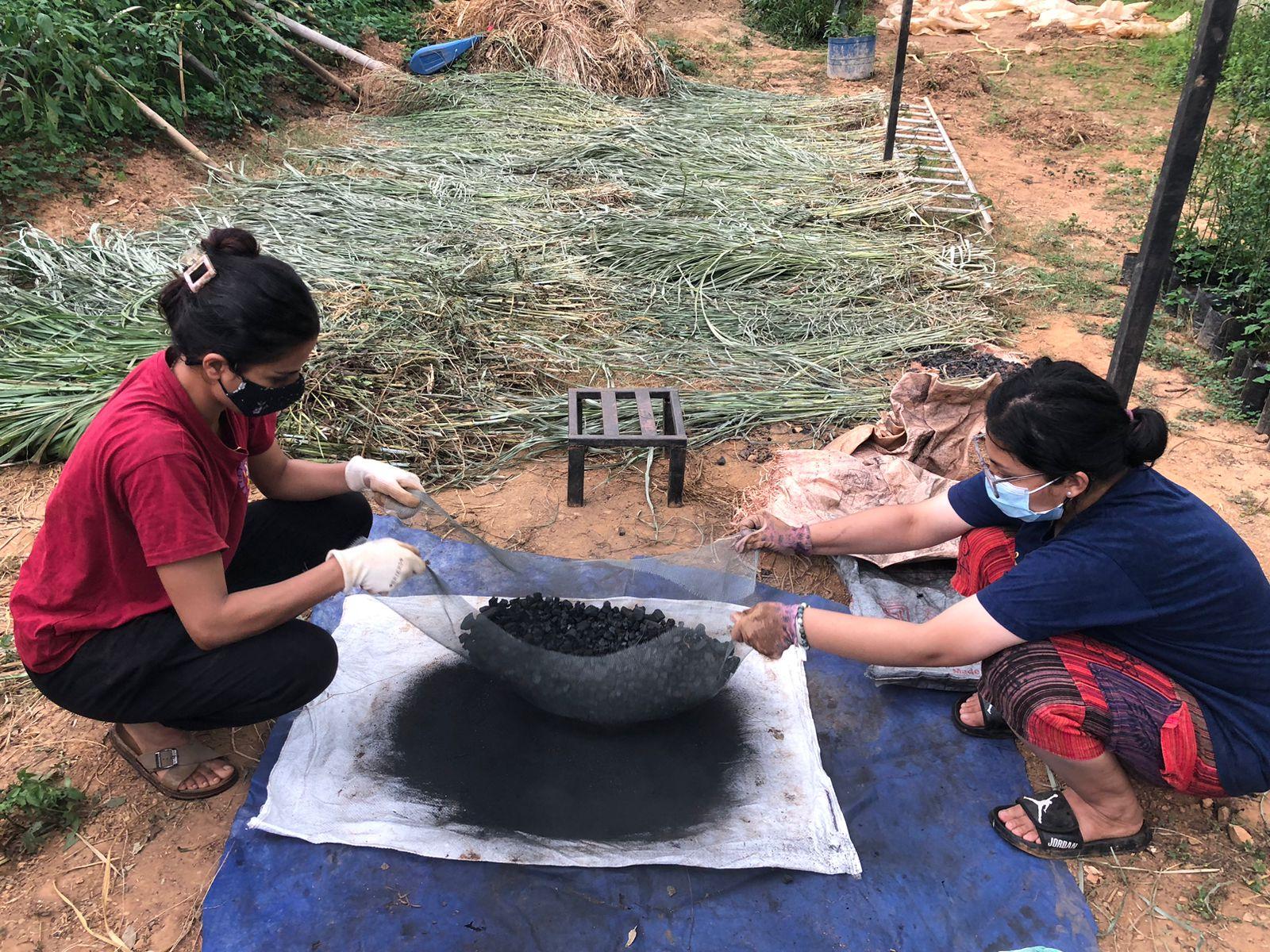
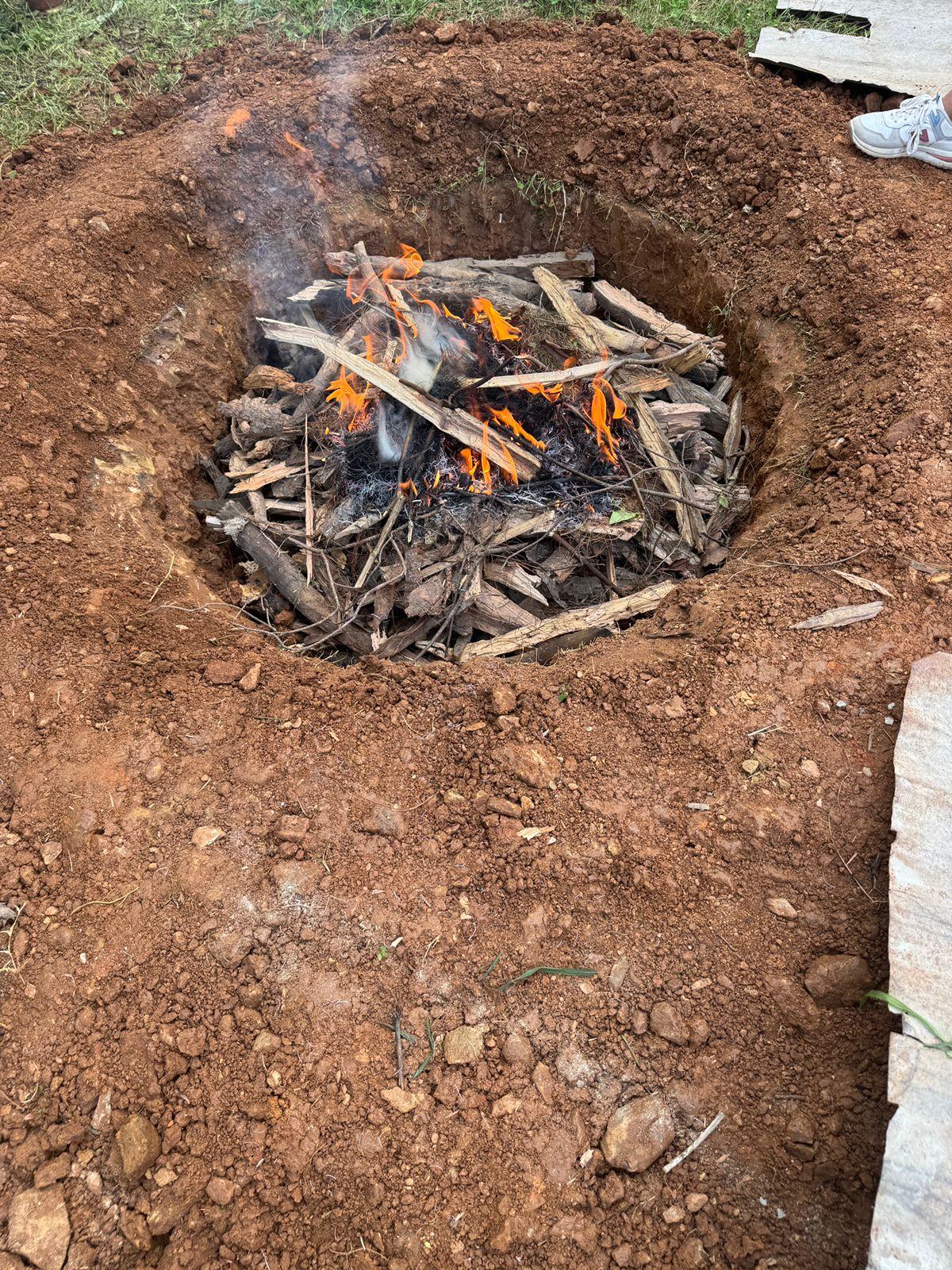
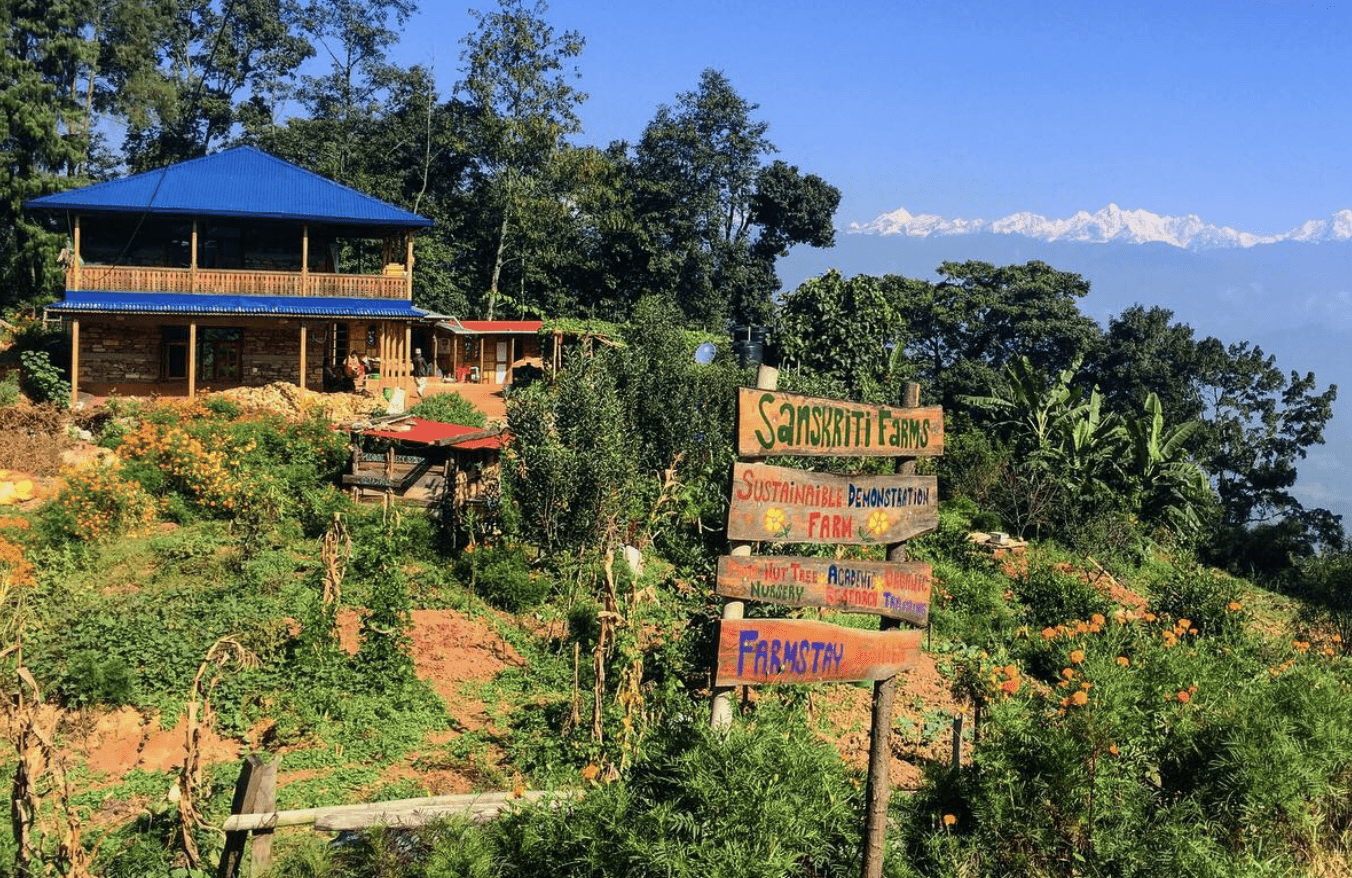
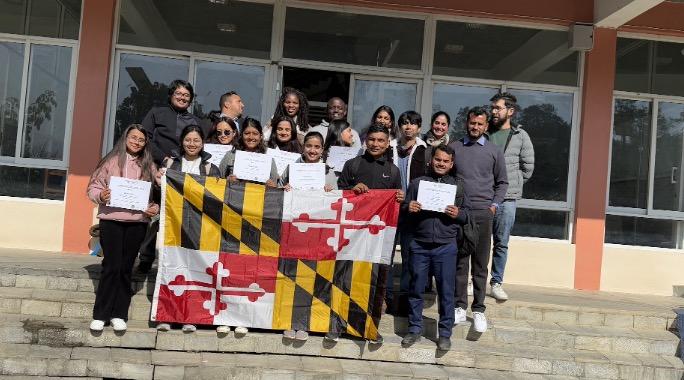
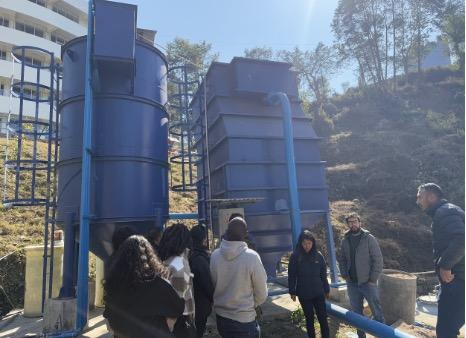
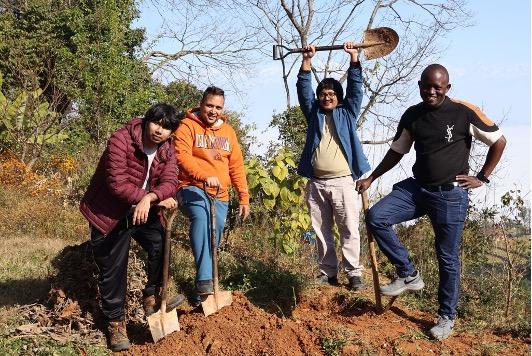
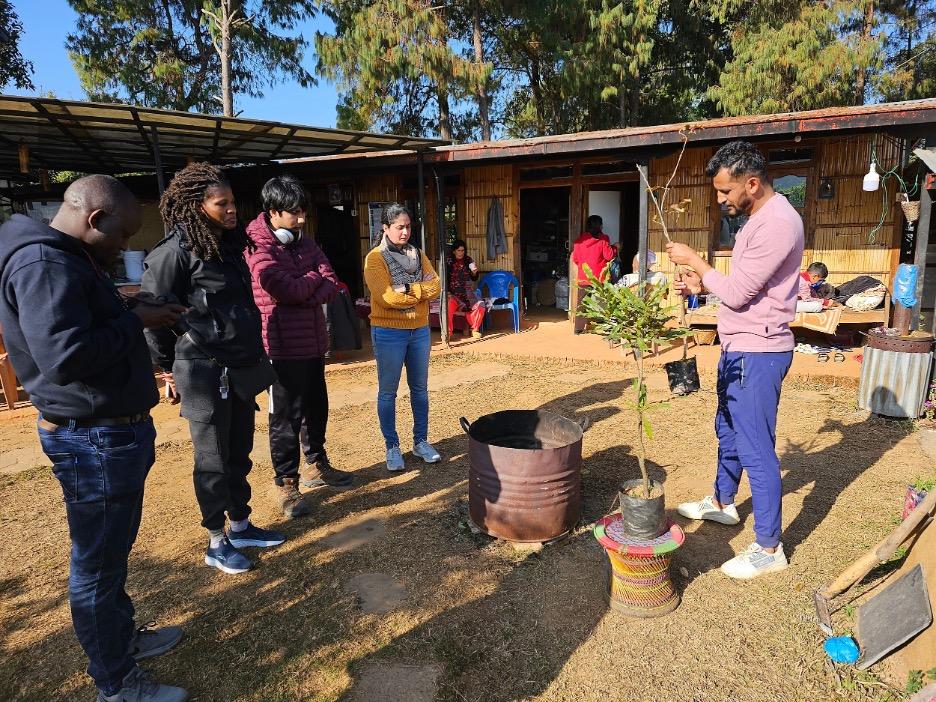


Fulfills these Global FEWture Alliance Objectives:


